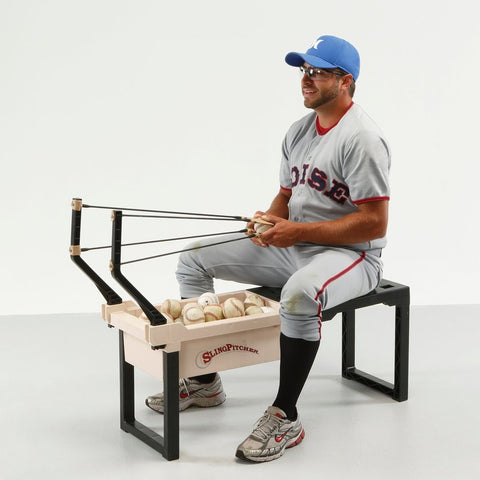
Rugby gloves provide protection for hands and warmth. They are made of synthetic materials (e.g spandex, polyester) and designed to protect the hands while keeping the ball in the hand. They can be fragile and easily break after only a few matches. It is best to buy them from a trusted supplier.
Gilbert, Optimum or Kooga are three of the top rugby brands. They are available in many sizes and designs. These gloves are usually made of synthetic materials such as silicone or polyester. To keep your hands warm, some gloves have a fleece lining. Some players may prefer to use fingerless mitts over gloves. However, you should ensure that your mitts are legal. Otherwise, you could be sent off the field for misconduct.
To trap air between the gloves and skin, some rugby gloves also have thermal properties. This keeps the gloves' water absorption down. This allows for faster drying. It is essential to find a glove with the right fit and resistance.

One of the most common reasons why rugby gloves are not worn is the lack of grip they provide. A player who is unable or unwilling to catch a ball can lose grip, making it more difficult to score. A player may lose the ball or pass it on to a friend. Even if a player manages to catch the ball in rugby, their hand can become awkward, which could lead to injury.
One drawback to rugby gloves is their tendency to get dirty after playing. A good way to get the most out of them is to wash them in warm water with mild soap. After soaking your gloves, dry them by turning them inside out. You can wipe any remaining water off the gloves.
It is essential to choose the correct size. The hand's circumference determines the size of your gloves. The gloves may lose their shape, or become too tight, if you choose the wrong size. The wrong size can also reduce circulation, which can be detrimental to performance.
When it is wet or muddy, the palm's gripping surface can become sticky and slimy. Full thermal gloves are recommended for rugby players. They will keep your hands warm but can also snag or dislocate your fingers.

Some coaches encourage their players to wear gloves. This is particularly helpful in winter games, where the weather can be very cold. To keep their hands warm, many players will wear training mitts.
However, many wheelchair rugby players still prefer the current glove. They are better suited to their needs.
FAQ
Is football an extreme sport?
It all depends who you ask. It is a game that millions have played for thousands of decades all over the globe. Many would argue that it's not a sport, but a form entertainment. Others argue that it is a similar sport to any other. Some even believe it is the ultimate sport.
Truth lies somewhere in-between these extremes.
Football is an extreme sport. However, it also requires strategy, teamwork and strategy.
Who is interested in extreme sports and who doesn't?
Extreme sports are open to anyone who is interested in trying something new. You can do both, whether you want to learn more about them or compete with others.
There are many types of activities that you can choose from. Some involve jumping off of a cliff. Others involve long distance cycling. Others include skiing or snowboarding.
Some extreme sports require special skills. Skydiving, for example, requires that you have the proper training before jumping out of an aircraft. Parachuting also needs practice.
Extreme sports are very popular with young people. Extreme sports are popular because they allow you to have fun in nature. They are also popular among athletes who train hard in order to improve their performance.
What happens when someone is doing extreme sports and falls from a cliff?
Extreme sports may cause injuries if you tumble off a rock face.
This injury could prove to be life-threatening. You could die if you fall from a height greater than 30 meters (100 feet).
Statistics
- According to the United States Parachuting Association, about 21 people die yearly from skydiving. (livehealthy.chron.com)
- Boxing— 90% of boxers suffer brain damage over their careers, and this is not surprising in the least, considering that they are throwing punches at each other's heads. (rosenfeldinjurylawyers.com)
- Nearly 30% of all boardsailors live in the South, and more than 55% of all boardsailors live in cities with a population of more than two million people (momsteam.com)
- Approximately 50% of all wakeboarders have been participating in the sport for 1-3 years. (momsteam.com)
- Nearly 98% of all "frequent" roller hockey participants (those who play 25+ days/year) are male. (momsteam.com)
External Links
How To
How do I learn how to skateboard?
Skating is a sport in which you use your feet for movement on ice and snow. You can skate alone or with your friends. It requires coordination and balance. You must first learn how to stand upright on the board. Practice balance and moving forward and backward. Finally, try jumping off ramps or stairs. These skills will allow you to skate faster and further than ever before.
Here are some tips and tricks to get you started with skating.
-
It is important to determine the type of skates that you are looking for. There are many options for skates such as inline, roller, speed, figure, and speed. Depending on your level of experience, you can choose the right kind of skates. Inline skates, roller blades, and speed skates are ideal if you just want to give them a go. Figure skaters prefer boots that offer support throughout their performances.
-
Buy proper equipment. Your gear choice depends on whether you plan to participate in competitive events or just enjoy skating around the park. Skates that are well-made, durable, and fit well for competition are the best.
-
Try new techniques. When learning any skill, practice makes perfect. Do not wait until you have mastered a skill to practice it. Instead, learn simple moves such as walking backwards, sliding sideways, spinning and so on. This will make it easier to master difficult maneuvers later.
-
Keep learning. Never expect to become a skilled skater overnight. The best skaters spend a lifetime perfecting their art. They never stop learning. You have many options to improve your technique. For example, you could take lessons at a local rink, join a recreational league, watch videos online or attend workshops.
-
Be patient. If you're still having trouble mastering a tricky maneuver, don't worry. You can keep practicing. You will eventually be able to do more advanced stunts.
-
Have fun. Skating is great for beginners, as it doesn't require expensive equipment and requires little training. It's also great fun!